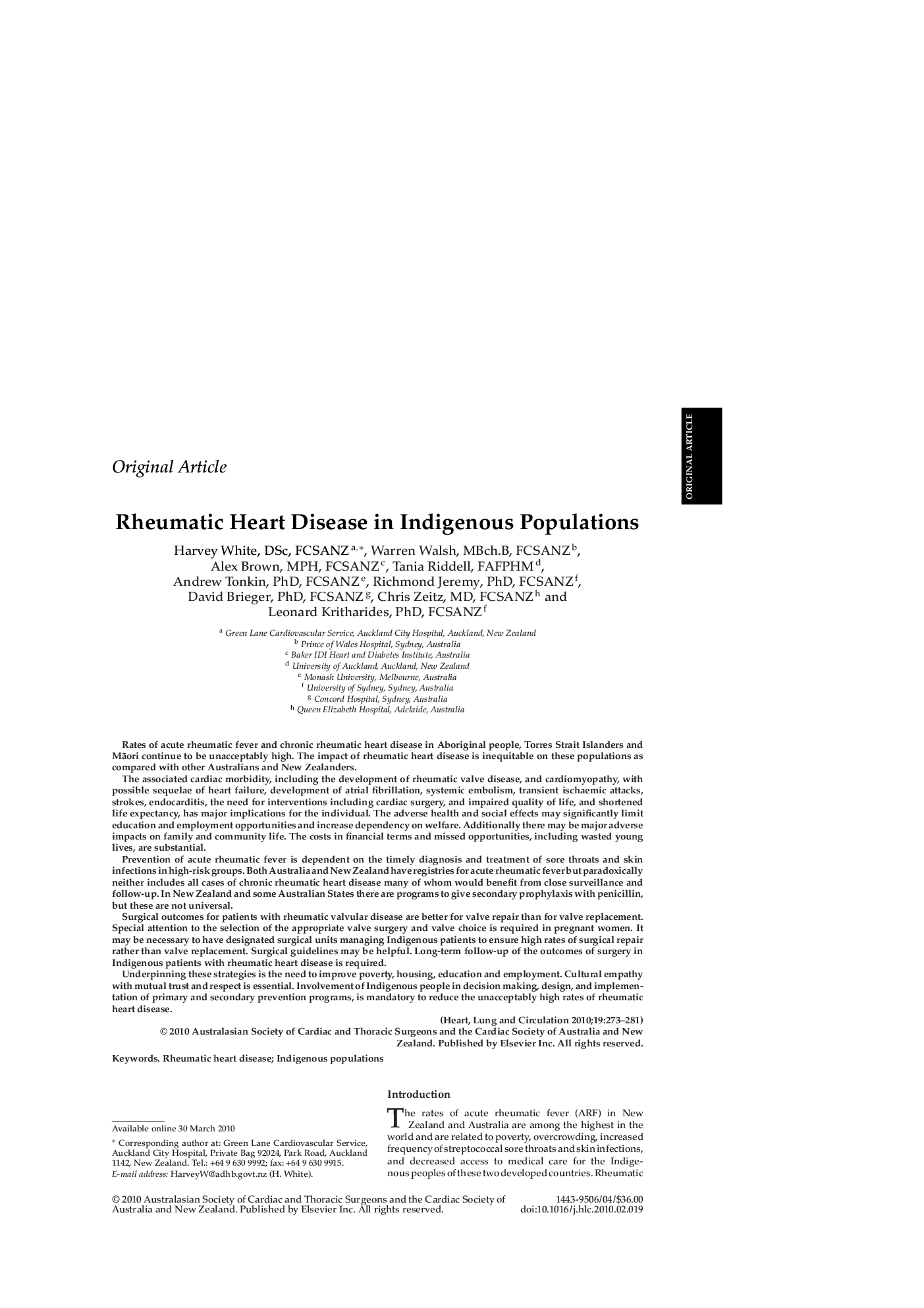| کد مقاله | کد نشریه | سال انتشار | مقاله انگلیسی | نسخه تمام متن |
|---|---|---|---|---|
| 2920826 | 1575737 | 2010 | 9 صفحه PDF | دانلود رایگان |

Rates of acute rheumatic fever and chronic rheumatic heart disease in Aboriginal people, Torres Strait Islanders and Māori continue to be unacceptably high. The impact of rheumatic heart disease is inequitable on these populations as compared with other Australians and New Zealanders.The associated cardiac morbidity, including the development of rheumatic valve disease, and cardiomyopathy, with possible sequelae of heart failure, development of atrial fibrillation, systemic embolism, transient ischaemic attacks, strokes, endocarditis, the need for interventions including cardiac surgery, and impaired quality of life, and shortened life expectancy, has major implications for the individual. The adverse health and social effects may significantly limit education and employment opportunities and increase dependency on welfare. Additionally there may be major adverse impacts on family and community life. The costs in financial terms and missed opportunities, including wasted young lives, are substantial.Prevention of acute rheumatic fever is dependent on the timely diagnosis and treatment of sore throats and skin infections in high-risk groups. Both Australia and New Zealand have registries for acute rheumatic fever but paradoxically neither includes all cases of chronic rheumatic heart disease many of whom would benefit from close surveillance and follow-up. In New Zealand and some Australian States there are programs to give secondary prophylaxis with penicillin, but these are not universal.Surgical outcomes for patients with rheumatic valvular disease are better for valve repair than for valve replacement. Special attention to the selection of the appropriate valve surgery and valve choice is required in pregnant women. It may be necessary to have designated surgical units managing Indigenous patients to ensure high rates of surgical repair rather than valve replacement. Surgical guidelines may be helpful. Long-term follow-up of the outcomes of surgery in Indigenous patients with rheumatic heart disease is required.Underpinning these strategies is the need to improve poverty, housing, education and employment. Cultural empathy with mutual trust and respect is essential. Involvement of Indigenous people in decision making, design, and implementation of primary and secondary prevention programs, is mandatory to reduce the unacceptably high rates of rheumatic heart disease.
Journal: Heart, Lung and Circulation - Volume 19, Issues 5–6, May–June 2010, Pages 273–281